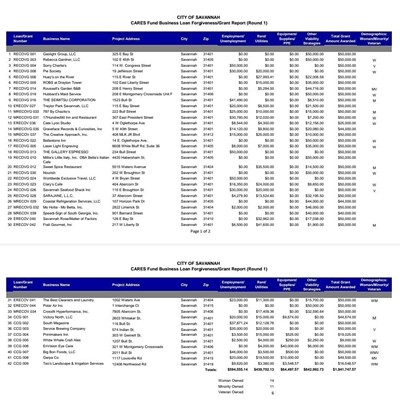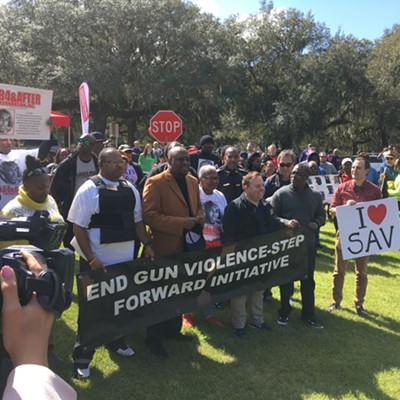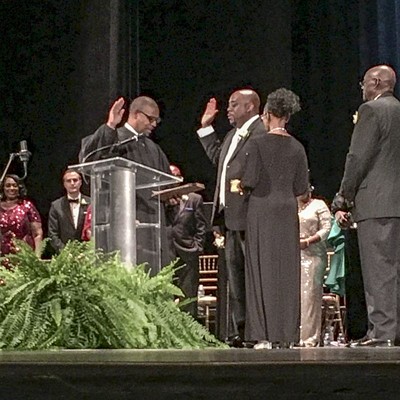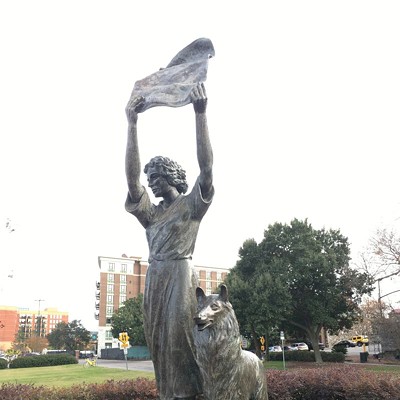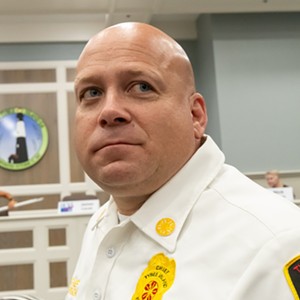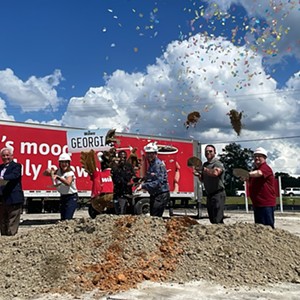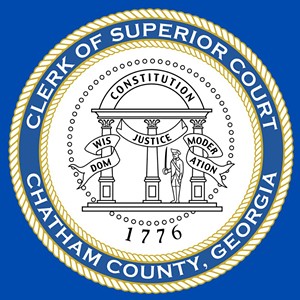IN THE FINAL ANALYSIS, the controversial proposal for a new City Fire Service Fee will likely pass precisely because it makes almost everyone equally angry.
You name it: Homeowners, realtors’ associations, low-income residents, senior citizens, nonprofits, the public schools. Representatives of a myriad of constituencies, crossing most all sociopolitical lines, have all forcefully spoken out against it.
Unlike most controversial proposals in Savannah, this one doesn’t seem to pit the usual class and racial divisions against each other. And that’s why it’s probably going to pass.
Indeed, one is tempted to say the most unity Savannah has shown in quite a while has been its massive opposition to the Fire Service Fee.
So far I can only find a handful people who seem to support the proposal.
Unfortunately that handful is pretty important: It comprises City Manager Rob Hernandez, Mayor Eddie DeLoach, and an apparent majority of City Council.
A sense of weary resignation has set in among opponents of the fee, as Mayor DeLoach has signaled strongly that City Council is likely to make the move regardless of public opposition.
Speaking to Council last week, local resident Ivan Cohen said, “I know it’s coming, this fire fee, or tax, whatever you call it... You can dress it up anyway you want.”
Cohen also pointed out the slippery-slope nature of the fee, asking Council what’s to stop them from one day implementing a Police Service Fee as well?
Local activist Linda Wilder Bryan asked Council, “If you want us to believe you’ve done everything you could, why aren’t we using impact fees for hotels and motels that come to our City?”
Now, even just a few years ago that kind of talk was taboo around here. Tourism in general, and the hotel/motel tax in particular, have been high on the list of local sacred cows not to be questioned.
Bryan joins a growing list of local residents and small businesspeople who are asking why it seems that the City budget must always be balanced on their backs, while tourism and the Port of Savannah continue to shatter records, and while one of the more profitable investments in America right now is a downtown Savannah property purchased specifically to turn into an Airbnb rather than a home.
It’s a valid question. After all, when it’s time to ask the public to vote to support another one percent sales tax for capital projects or for new schools, the sales pitch always includes pointing out that sales taxes mostly impact tourists.
Why should this be any different? Isn't fire safety on par with the schools in importance, at minimum?
While many residents simply don’t see a practical difference between a fee and a tax, the fact that it’s a fee means, among other things, that DeLoach and the newer members of Council elected with him can campaign that they didn’t raise taxes.
DeLoach himself has been candid in saying all along that it’s either a new Fire Fee or a tax hike, pick your poison.
When a member of a realtors group complained about the fee last week, the Mayor asked her point-blank: “Would you rather have a tax increase instead?”
Alderman Julian Miller, who supports the Fire Fee, has written constituents saying that without the Fire Fee, City property tax would have to be raised by 40 percent over the next two years.
“The alternative [to the Fee] is to increase the millage rate by 2.5 mills each of the next two years or discontinuing services,” Miller writes. “I don’t think this city would stand for either.”
Another almost-certain yes vote, Alderman At Large Brian Foster, tried to explain that City residents already have it easy with regards to property taxes anyway:
“In the past 10 years the City has lowered its millage rate while the County has raised their taxes by 10 percent, and the School Board has raised their taxes by about 20 percent,” Foster said in support.
Indeed, the City tentatively plans to slightly lower the millage rate once again, in order to partially mitigate the impact of the Fire Fee.
Speaking of taxes: In what might be a first for a Savannah City Council meeting, the City Manager literally urged residents to lie on their income taxes.
When a member of the public complained that at least you can write off property taxes, unlike a fee, Hernandez told her to go ahead and deduct it anyway.
“The IRS usually looks the other way on that,” Hernandez counseled.
It was another example of the bit of a learning curve that Hernandez has faced.
I was recently forwarded an email correspondence the City Manager had with a local woman who said she couldn’t afford the Fire Fee because she owns two homes — hers, and a home which she recently inherited from parents who passed away.
“I cannot afford to pay this fee. And since I own two homes, I can assure you that money is not in my budget,” she wrote to Hernandez. “Am I expected to come up with an additional $740 per year for the City of Savannah? Because I don’t have it.”
To which Hernandez replied:
“You have two homes and can’t afford to pay the fee? What services would you recommend we cut?”
The woman responded angrily:
“You’re being a bully. I am a low income tax payer. You are a City Manager. I pay your salary with my low income. My deceased parents left me a home in Edgemere. I bought a home in Edgemere. This is a very low income neighborhood,” the woman wrote back to Hernandez.
The truth is that because of the wide spectrum of wealth disparity in Savannah, someone here can find themselves owning two homes and potentially be in a worse position than if they owned one, or none.
It’s one more reason that this one-size-fits-all, everybody-pays Fire Fee offers something to displease virtually everyone it touches, and it will touch just about everyone in one way or another.
While the Fire Fee seems likely to pass when it is voted on — scheduled for Dec. 21 — it will also likely set in motion a series of economic and political impacts which are beyond the ability of anyone on either side of the issue to accurately predict.

